How to Clean Your Knife
Russ Chastain 07.05.18
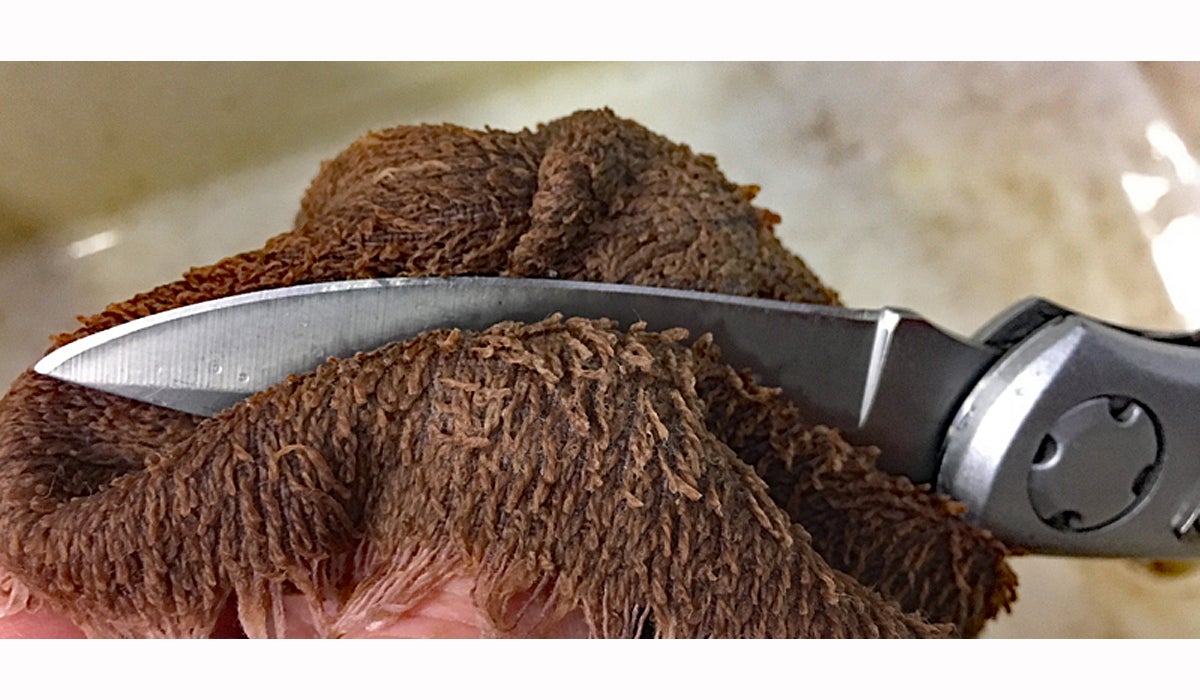
Knives are important tools, and one of the most important things for any knife owner is knowing how to clean your knife. Whether it’s a folder or a fixed blade, EDC or hunting/skinning knife, knowing how to take care of your knife is important.
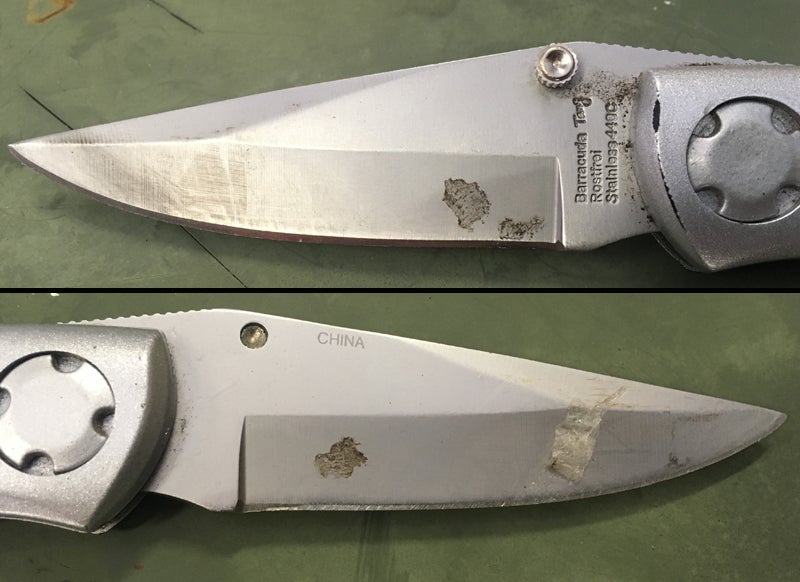
(Photo © Russ Chastain)
If you’re cleaning general everyday crud off of your everyday carry knife, start with good old-fashioned soap and water. I like to use a good grease-cutting dish soap, and hot water works best to cut through oil and grease. Use a sponge or washcloth, and if you have serrations, a toothbrush can be handy.
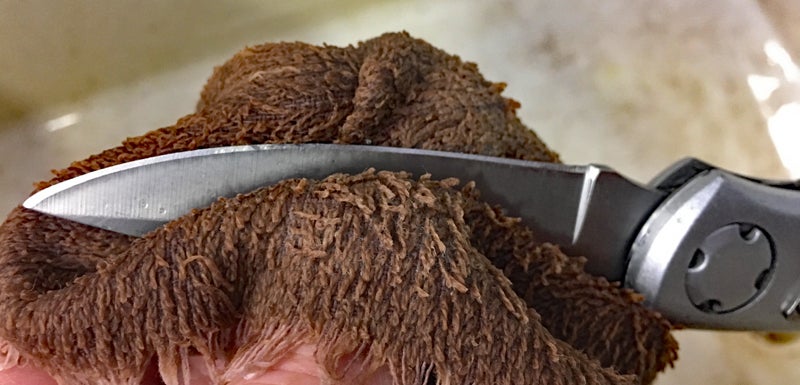
(Photo © Russ Chastain)
Take care when wiping the side of the blade — always move away from the spine towards the cutting edge. This will help prevent cuts to you and will help protect your cloths and sponge from damage.
Dish soap is great for cleaning up a fat-caked or oil-slick knife after dressing out a fat deer, hog, or bear.
For stuck-on crud like bits of food, dried blood, or vegetable matter, soak the blade in soapy water for a while to loosen it up.
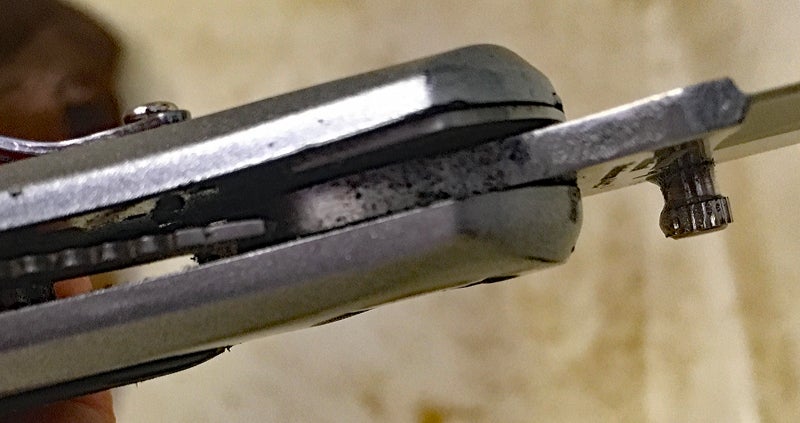
(Photo © Russ Chastain)
If you have some gunk that soap and water won’t touch, try a solvent. WD-40 or mineral spirits will often do the job to dissolve things like adhesive from packing tape (from opening boxes), tree sap, tar, etc.
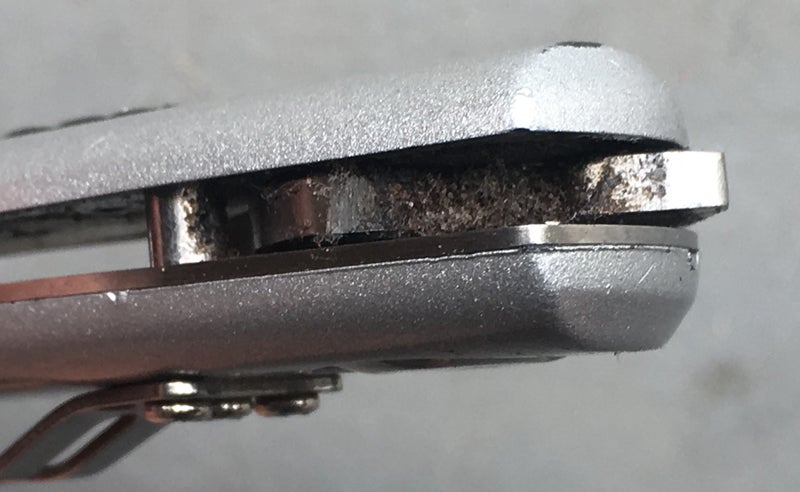
(Photo © Russ Chastain)
If your knife is a folder, make sure you clean out all the nooks and crannies. Pocket lint and plenty of other crud gets down in there. You can use a brush, toothpicks (or just a sharpened twig), and/or cotton swabs to get down in there and get rid of the gunk.
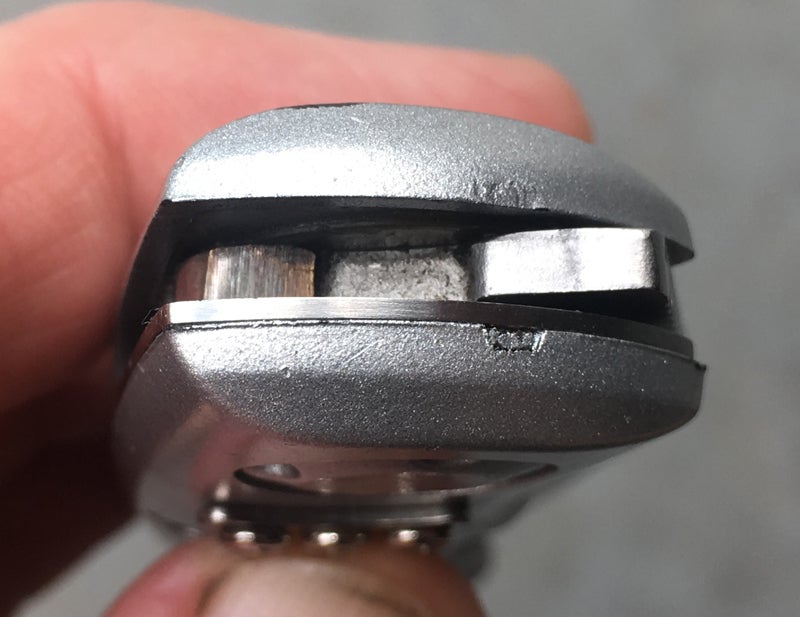
(Photo © Russ Chastain)
If you love a shiny knife, take care to use only soft cloths/sponges so you don’t scratch the blade.
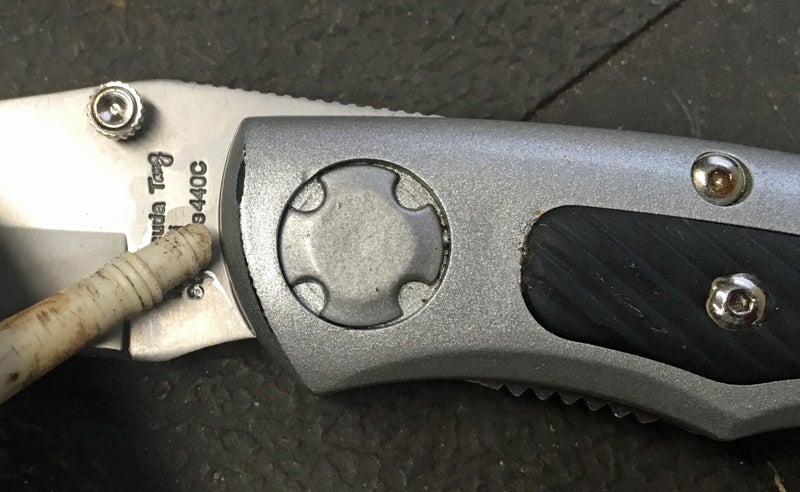
After cleaning, rinse off all the soap and dry your knife. If it’s a folder, you might want to shake most of the water out and leave it in the dish drainer for a while to air out… or use compressed air to blow the moisture out of there so you can put it right back in your pocket, where it belongs.
Oil your knife if needed. Carbon steel will rust, and oil will help prevent that. If you’re concerned about oiling a knife that you use in the kitchen or for dressing fish and game, use cooking oil on it. And some lubrication on the pivot points of a folding knife will make your life easier.
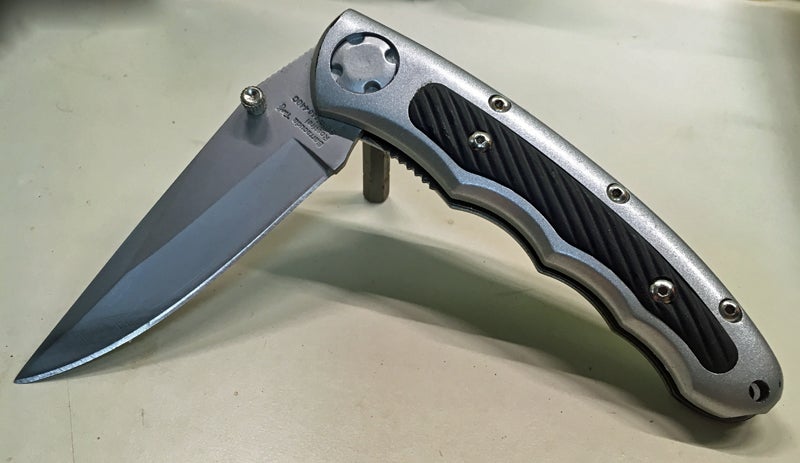
(Photo © Russ Chastain)
Even cheap EDC knives need some love. Happy knife = happy life.